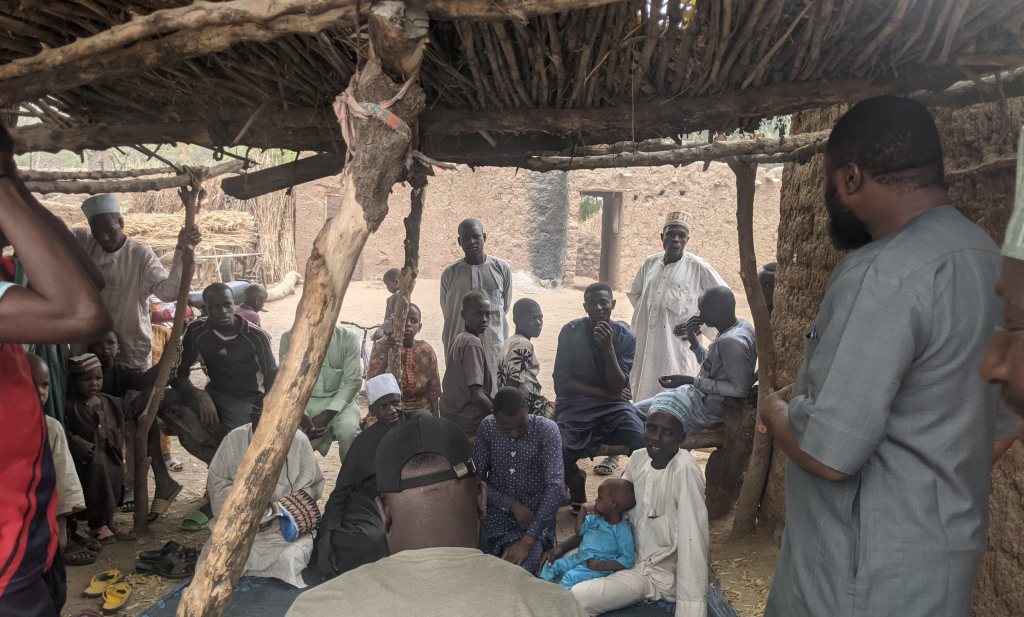In this week's Letter to My Farmers, Babatunde's emphasis is placed on seed quality. Sustainable seed quality and seed production is key in order to ensure high quality variety of crops.
It is often believed that to increase agricultural productivity, yield is a major determinant. More often than not, smallholder farmers experience poor crop yield year-in-year-out due to several factors: poor soil management practices, poor crop protection practices, and poor seed quality amongst others. However, experience has taught me that the most fundamental factor that has a direct influence on smallholder farmers' productivity is largely placed on seed quality. Seed quality is simply put as genetic (adaptation, varietal purity), physiological (germination, vigor), sanitary (absence of diseases), and physical integrity (percentage of good seeds, free of stones and weed seed).
Over the last few years, it has been observed that the yield of crops in developing countries has been declining as a result of use of poor quality inputs (especially good seeds quality, which is most times unavailable) and other poor agricultural practices. This is because a seed contains all the genetic information and cannot produce more than its inherent capacity at any given period, and this capacity can be affected by external factors. For instance, a seed that is expected to produce 1kg produce, can never produce 2kg, even if the soil is well improved, that's the inherent capacity and it remains. Therefore, we need to consciously and strategically develop a good quality and sustainable seed system locally in order to achieve food security. In 2021, FAO emphasized this need and suggested that a sustainable seed production system ensures that “high-quality seeds of a wide range of varieties and crops are produced and fully available in time and are affordable to farmers and other stakeholders,”. This is important to increase yield unlike our current seed practices of planting seeds harvested from previous season, which adversely affect output.
In conclusion, we need to invest and develop a sustainable seed system to achieve food security and zero hunger, and ensure that all stakeholders in the sector are actively involved and develop local capacity for the production of more quality seeds. Every life of a crop starts with a seed, which carries the inherent capacity to produce either abundance or lean. So, choose wisely.
Yours-in-Service,
Babatunde
Over the last few years, it has been observed that the yield of crops in developing countries has been declining as a result of use of poor quality inputs (especially good seeds quality, which is most times unavailable) and other poor agricultural practices. This is because a seed contains all the genetic information and cannot produce more than its inherent capacity at any given period, and this capacity can be affected by external factors. For instance, a seed that is expected to produce 1kg produce, can never produce 2kg, even if the soil is well improved, that's the inherent capacity and it remains. Therefore, we need to consciously and strategically develop a good quality and sustainable seed system locally in order to achieve food security. In 2021, FAO emphasized this need and suggested that a sustainable seed production system ensures that “high-quality seeds of a wide range of varieties and crops are produced and fully available in time and are affordable to farmers and other stakeholders,”. This is important to increase yield unlike our current seed practices of planting seeds harvested from previous season, which adversely affect output.
In conclusion, we need to invest and develop a sustainable seed system to achieve food security and zero hunger, and ensure that all stakeholders in the sector are actively involved and develop local capacity for the production of more quality seeds. Every life of a crop starts with a seed, which carries the inherent capacity to produce either abundance or lean. So, choose wisely.
Yours-in-Service,
Babatunde
Related



